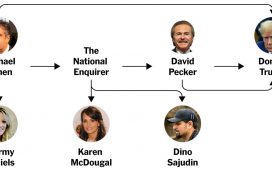The smash-and-grab robberies plaguing San Francisco and Los Angeles spread to smaller cities in the state and across the country to Chicago and Minneapolis over the holiday weekend, with organized “flash mobs” ransacking stores and making off with merchandise worth thousands.
Police in cities throughout the U.S. reported brazen organized robberies on Black Friday and again Saturday.
Near Los Angeles on Friday, eight thieves used sledgehammers to threaten Home Depot employees while they stole tools including crowbars and hammers.
“We closed the front entrance and they put their sledgehammers up and whoever got in the way, they were going to hurt them,” employee Luis Romo told FOX11-TV.
Two days earlier, armed robbers in Oakland, California, fatally shot a former police officer providing security for a news crew reporting on another theft at a nearby Target. A reward of $32,500 is being offered for information that leads to an arrest in the killing of Kevin Nishita, who was a retired officer for the cities of Hayward, San Jose and Colma.
On Thanksgiving Day in Chicago, police say robbers hurled a cinder block through a Canada Goose store before it opened.
Thieves also swarmed three stores in Chicago’s Wicker Park all within the same hour on Friday, including a North Face, Footlocker and a cell phone retailer.
In the Minneapolis metropolitan area, up to 30 people ransacked a Best Buy on Friday. Another Best Buy in the St. Paul area was also robbed by around 10 to 12 people.
Back in California, on Friday, four thieves working together took $30,000 worth of sunglasses out of a Monterey Sunglasses Hut store, according to an Action News 8 report.
Anthony Becker, a Democrat on the city council in Santa Clara, California, said Monday that “enough is enough.
“The organized crime rings, burglaries and robberies must stop,” he said. “All over the Bay Area has experienced these smash-and-grab crime sprees.”
But Scott Decker, a criminology and criminal justice professor at Arizona State University, told Business Insider that media coverage of the thefts could be fueling the trend.
“It may be that someone who is an offender who … sees it on TV and says, ‘Hey, the cops in my city aren’t that sophisticated,’ or ‘We could get away with one if we just go in real quickly and get out quickly,’” Mr. Decker said.
Additional camera surveillance, he said, may be a double-edged sword because it could serve as a deterrent, but if it is widely circulated — it could also serve as a tutorial.
Former St. Paul police officer Mike Olson, who now serves as chief executive of Minneapolis-based 360 Security Services, said it cannot be confirmed yet whether the crimes are copycats or spur of the moment.
“With everybody wearing masks because of COVID and law enforcement resources spread thin, you certainly create a perfect storm for would-be criminals,” Mr. Olson told the Minneapolis Star-Tribune.
The top five cities for organized retail crimes in the past year in order were Los Angeles, San Francisco/Oakland, Chicago, New York and Miami, according to an August report from the National Retail Federation.
While some local officials have touted increased police presence in popular shopping spots as a deterrent, some police and retailers say the theft laws also need a boost.
San Francisco Police Chief Bill Scott told ABC7-TV that the growth of the organized theft rings are linked to the fact that there are “less consequences” for nonviolent theft, robbery and property crimes.
“I mean if you are in that business, and that’s what you do for a living, commit crimes, you’re going to probably go toward the crimes that are less likely to have consequences that’s less likely to be caught, particularly when you have 40 or 50 people rushing at one time,” said Mr. Scott, a 33-year police veteran.
According to a Best Buy spokesperson, “Retailers across the country are seeing spikes in crime that have “been, by and large, nonviolent though often traumatic for those who witnessed them,” the StarTribune reported.
While the retail industry is taking extra security precautions and working with local law enforcement, the spokesperson reportedly said it is also lobbying federal lawmakers for a new law that would make it harder to sell stolen merchandise online.
Rachel Michelin, president and CEO of the California Retailers Association, told CBS5-TV in San Francisco that stolen goods will likely be resold in a variety of places.
“You’re gonna see it in flea markets, you’re gonna see it in online marketplaces, you’re gonna see it – we’ve seen stores behind stores,” said Ms. Michelin. “So it might be a mini-mart in some place in the state and behind the wall is a whole other boutique of stolen goods where people can go in and purchase items. You’ll see it on the street being sold, you’ll see private sales.”
The people organizing the thefts, she said, are using the merchandise to expand their criminal enterprises.
“So when you talk about human trafficking and you talk about drug cartels – that’s the area that we’re in right now and retail theft is funding those really bad crimes happening not only throughout California, but our country,” she said.






